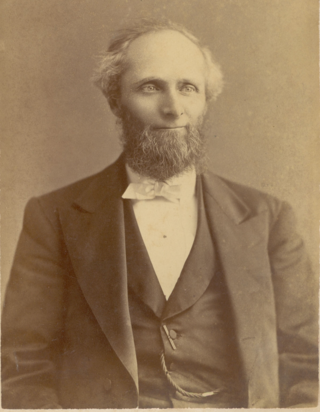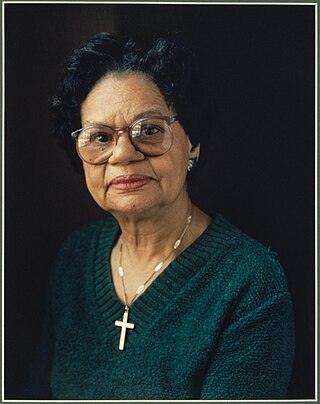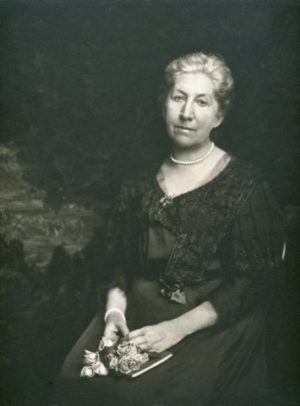
The United Church of Christ (UCC) is a socially liberal mainline Protestant Christian denomination based in the United States, with historical and confessional roots in the Congregational, Restorationist, Continental Reformed, and Lutheran traditions, and with approximately 4,600 churches and 712,000 members. The UCC is a historical continuation of the General Council of Congregational Christian churches founded under the influence of New England Puritanism. Moreover, it also subsumed the third largest Calvinist group in the country, the German Reformed. Notably, its modern members have theological and socio-political stances which are often very different from those of its predecessors.
A Christian denomination is a distinct religious body within Christianity that comprises all church congregations of the same kind, identifiable by traits such as a name, particular history, organization, leadership, theological doctrine, worship style and, sometimes, a founder. It is a secular and neutral term, generally used to denote any established Christian church. Unlike a cult or sect, a denomination is usually seen as part of the Christian religious mainstream. Most Christian denominations refer to themselves as churches, whereas some newer ones tend to interchangeably use the terms churches, assemblies, fellowships, etc. Divisions between one group and another are defined by authority and doctrine; issues such as the nature of Jesus, the authority of apostolic succession, biblical hermeneutics, theology, ecclesiology, eschatology, and papal primacy may separate one denomination from another. Groups of denominations—often sharing broadly similar beliefs, practices, and historical ties—are sometimes known as "branches of Christianity". These branches differ in many ways, especially through differences in practices and belief.

The National Council of the Churches of Christ in the USA, usually identified as the National Council of Churches (NCC), is the largest ecumenical body in the United States. NCC is an ecumenical partnership of 38 Christian faith groups in the United States. Its member communions include mainline Protestant, Eastern Orthodox, Oriental Orthodox, African-American, evangelical, and historic peace churches. Together, it encompasses more than 100,000 local congregations and 40 million adherents. It began as the Federal Council of Churches in 1908, and expanded through merger with several other ecumenical organizations to become the National Council of Churches in 1950. Its Interim President and General Secretary is Bishop Vashti Murphy McKenzie.

The Advent Christian Church, also known as the Advent Christian General Conference (ACGC), is a "first-day" body of Adventist Christians founded on the teachings of William Miller in 1860. The organization's Executive Director is Reverend Justin Nash, and its President is Reverend John Gallagher. Headquartered in Charlotte, North Carolina, the functions of its central offices include global missions, leadership development, church planting and management of organizational publications and media. These ministries are under the leadership of the organization's Executive Director, Rev. Justin Nash, who is accountable to the organization's executive council. This council, a governing board made up of elected representatives from Advent Christian Churches, is chaired by the organization's president, Rev. John Gallagher. In addition to the work of the central offices, more localized work is done in five regions of the U.S. and Canada under the direction of five regional superintendents, as well as in several state conference bodies and in 30 countries around the world. The organization holds to a congregational structure, in which each of its member churches and their members has input into the overall direction of the organization.
Church of Christ may refer to:
The Confessing Movement is a largely lay-led theologically conservative Christian movement that opposes the influence of theological liberalism and theological progressivism currently within several mainline Protestant denominations and seeks to return those denominations to its view of orthodox doctrine or to form new denominations and disfellowship (excommunicate) them if the situation becomes untenable. Those who eventually deem dealing with theological liberalism and theological progressivism within their churches and denominations as not being tenable anymore would later join or start Confessional Churches and/or Evangelical Churches that continue with the traditions of their respective denominations and maintaining orthodox doctrine while being ecclesiastically separate from the Mainline Protestant denominations. Youth aligned with the Confessing Movement have viewed their project as being an 'Operation Reconquista'.
The National Association of Evangelicals (NAE) is an American association of Evangelical Christian denominations, organizations, schools, churches, and individuals, member of the World Evangelical Alliance. The association represents more than 45,000 local churches from about 40 different Christian denominations and serves a constituency of millions. The mission of the NAE is to honor God by connecting and representing Evangelicals in the United States.

A united church, also called a uniting church, is a denomination formed from the merger or other form of church union of two or more different Protestant Christian denominations, a number of which come from separate and distinct denominational orientations or traditions. Multi-denominationalism, or a multi-denominational church or organization, is a congregation or organization that is affiliated with two or more Christian denominations, whether they be part of the same tradition or from separate and distinct traditions.
The Primitive Methodist Church is a Methodist Christian denomination within the holiness movement. It began in England in the early 19th century, with the influence of American evangelist Lorenzo Dow (1777–1834).
The Swedenborgian Church in North America is one of a few New Church Christian sects which draws its faith from the Bible as illuminated by the teachings of Emanuel Swedenborg (1688–1772). The denomination's headquarters are on Quincy Street in Cambridge, Massachusetts.

Erastus Otis Haven was an American academic administrator, serving as the 2nd president of the University of Michigan from 1863 to 1869, as the 3rd president of Northwestern University from 1869 to 1872, and as the 2nd chancellor of Syracuse University from 1874 to 1880. He was a bishop of the Methodist Episcopal Church from 1880 until his death.

The National Association of Congregational Christian Churches (NACCC) is an association of 304 churches providing fellowship for and services to churches from the Congregational tradition. The Association maintains its national office in Oak Creek, Wisconsin, a suburb of Milwaukee. The body was founded in 1955 by former clergy and laypeople of the Congregational Christian Churches in response to that denomination's pending merger with the Evangelical and Reformed Church to form the United Church of Christ in 1957.
The Plan of Union of 1801 was an agreement between the Congregational churches of New England and the Presbyterian Church in the United States of America for mutual support and joint effort in evangelizing the American frontier. It lasted until 1852.

The National Council of Churches in the Philippines is a fellowship of ten Protestant and non Roman Catholic Churches in the Philippines denominations, and ten service-oriented organizations in the Philippines. A member of the World Council of Churches and the Christian Conference of Asia, the NCCP represents close to twelve million Protestant adherents. Advocacy for environmental protection and against large-scale mining are part of its core mission. Christian organizations other than churches may be received as associate members.

Luther Rice was an American Baptist minister who, after a thwarted mission to India, returned to America where he spent the remainder of his career raising funds for missions and advocating for the formation of a unified Baptist missionary-sending body, which culminated in establishment of the Baptist Triennial Convention. He also raised funds to establish Columbian College in Washington, D.C.
The Church of Jesus Christ in Solemn Assembly is a Mormon fundamentalist sect headquartered in Big Water, Kane County, southern Utah. It was founded in 1974 by Alex Joseph.

The National Council of Congregational Churches of the United States was a mainline Protestant, Christian denomination in the United States. Its organization as a denomination was delayed by the Civil War. Congregational leaders met again in Boston, Massachusetts in 1865, where they began to hammer out standards of church procedures (polity) and adopted a statement of faith, known as the Burial Hill Declaration. Denominational organization came in 1871 with formation of the National Council of Congregational Churches, which existed until its merger in 1931. In 1928, there were 5,497 Congregational churches in the U.S. with a membership of 939,130. These churches were served by 5,648 ministers.

Olivia Pearl Stokes was a religious educator, ordained Baptist minister, author, administrator, and civil rights activist. As the first African American woman to receive a doctorate in religious education, Stokes was a pioneer in her field dedicated to empowering disenfranchised and underrepresented groups. A majority of her work reflects her primary role as a religious educator, her commitment to develop leadership training, and her efforts to eliminate negative stereotypes of women and African Americans. She was also an avid student of African cultures, and developed programs to promote understanding of African civilizations.

Olivia Stokes Hatch was an American philanthropist, clubwoman, and travel writer.

Olivia Egleston Phelps Stokes was an American writer and benefactor to many organisations that helped the underprivileged in the United States including supporting churches, libraries, educational establishments, orphanages, housing and more.











